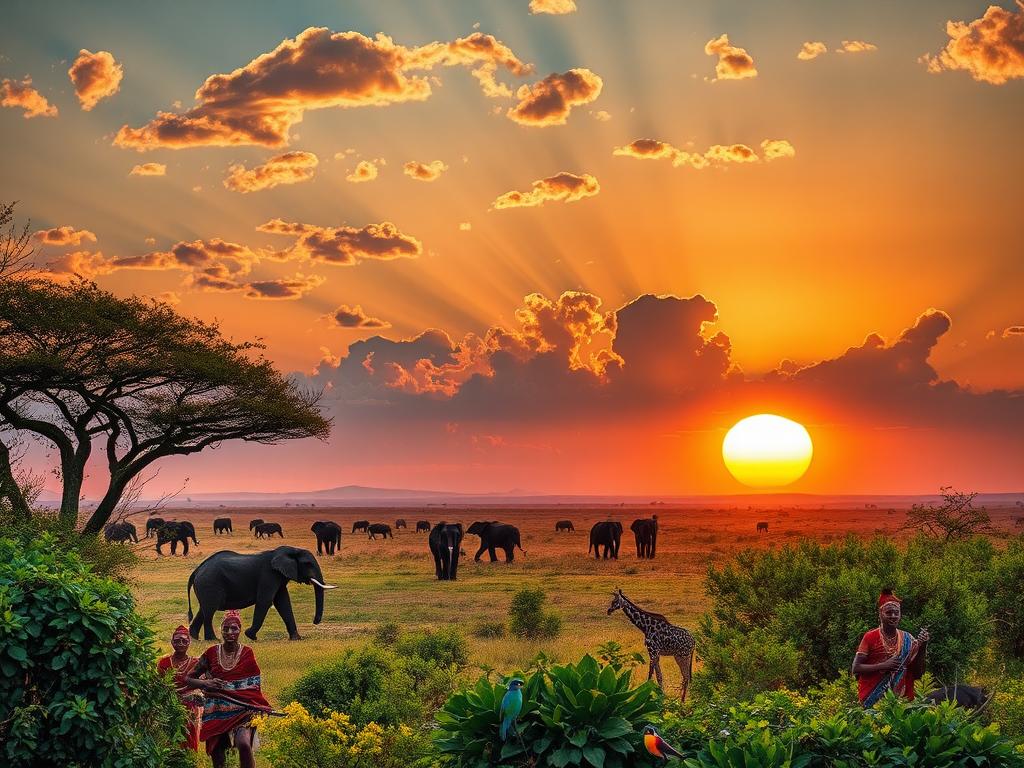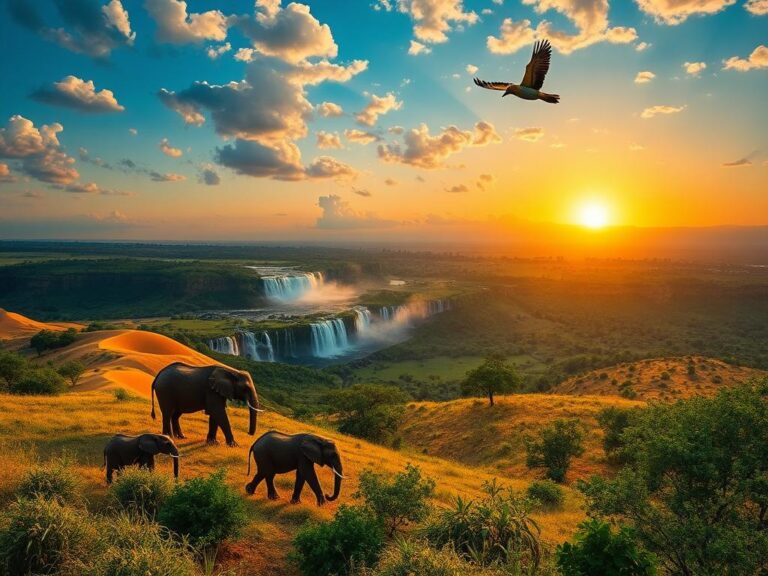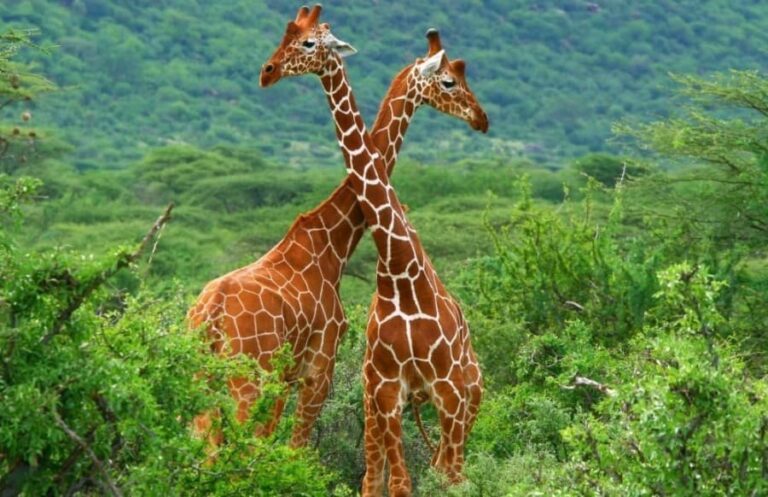
A Journey Through East Africa: The Ultimate Safari Experience
A Journey Through East Africa: The Ultimate Safari Experience
Introduction
East Africa safari adventures are the epitome of exploration and connection with nature.
This region is a treasure trove of wildlife, diverse cultures, and breathtaking landscapes.
From the vast plains of the Serengeti to the lush rainforests of Uganda, every corner of East Africa offers something unique for every traveler.
In this comprehensive article, we will explore the best safari experiences, tips, and cultural encounters that make East Africa an unforgettable destination.
Understanding the Geography of East Africa
East Africa is a region rich in natural beauty and incredible biodiversity.
Home to several countries, including Kenya, Tanzania, Uganda, and Rwanda, this area boasts some of the most diverse ecosystems on the planet.
From the snow-capped peaks of Mount Kilimanjaro to the expansive savannahs of the Serengeti, East Africa provides an unparalleled backdrop for adventure seekers.
The Great Rift Valley also runs through this region, creating unique geological formations and habitats for wildlife.
Each national park and reserve presents distinct opportunities to experience nature in its purest form.
The Magic of the Great Migration
One of the most iconic natural events in the world is the Great Migration.
Every year, over two million wildebeest and thousands of zebras embark on a journey across the Serengeti National Park in Tanzania.
This awe-inspiring spectacle is driven by the search for fresh grazing and water, starting typically in July and stretching into September.
“The Great Migration is not just a sight; it’s a journey of survival and resilience.” – National Geographic
Witnessing this monumental event is often the pinnacle of any East Africa safari.
Travelers can position themselves at strategic river crossings, where the thrill of seeing animals brave predators and strong currents unfolds before their eyes.
This breathtaking experience not only allows for unforgettable photos but also fosters a deep appreciation for wildlife and the interconnectedness of ecosystems.
Fantastic National Parks to Explore
East Africa is home to many incredible national parks, each offering unique experiences.
- Serengeti National Park: Renowned for its vast savannahs and diverse wildlife, it is famous for the Great Migration and boasts a healthy population of Big Five.
- Masai Mara National Reserve: A continuation of the Serengeti ecosystem, visitors can find exceptional wildlife viewing opportunities and a rich Maasai culture.
- Ngorongoro Crater: A UNESCO World Heritage site, the crater is a natural wonder teeming with wildlife, where visitors can witness an abundance of species in a compact area.
- Amboseli National Park: Known for its incredible views of Mount Kilimanjaro and large herds of elephants, this park offers stunning photo opportunities.
- Queen Elizabeth National Park: Located in Uganda, this park is famous for its diverse ecosystem, where visitors can enjoy boat safaris and wildlife viewing.
Gorilla Trekking: An Unforgettable Experience
No trip to East Africa is complete without venturing into the misty mountains of Uganda or Rwanda to meet the endangered mountain gorillas.
Gorilla trekking is a soul-stirring experience, allowing travelers to observe these magnificent creatures in their natural habitat.
The thrill of sighting these gentle giants in the wild, coupled with the lush greenery of the Bwindi Impenetrable National Park, is something that stays with you for a lifetime.
A journey to see gorillas involves a hike through dense forests, led by knowledgeable guides who share insights into their behavior and habitat.
“Standing just a few feet away from a gorilla can take your breath away.” – Wildlife Conservation Society
Not only will you be touched by the beauty of these animals, but you also contribute to conservation efforts that protect them.
Cultural Encounters and Local Communities
Engaging with the local culture adds depth to the safari experience.
East Africa is home to various ethnic communities, each with unique traditions, beliefs, and lifestyles.
Visiting Maasai villages is an opportunity to learn about their customs, crafts, and the significance of livestock in their society.
Participating in traditional dance performances and sharing a meal can provide an authentic glimpse into their daily life.
- Maasai culture: Famous for their rich traditions and colorful attire, learning about their practices can be both enlightening and enriching.
- Community-based tourism: Engaging in eco-friendly projects allows for responsible traveler contributions while preserving biodiversity.
Adventure Activities in East Africa
East Africa is not just about setting out on safari; there are countless adventure activities to keep thrill-seekers entertained.
From white-water rafting in Jinja at the source of the Nile to hiking Mount Kilimanjaro, there is something for every adventurer.
Here are some notable activities:
- Mount Kilimanjaro Climbing: Conquering Africa’s highest peak offers breathtaking views and a sense of accomplishment.
- Balloon Safaris: Experience the Serengeti from above while enjoying a unique perspective floating in a hot air balloon.
- Night Safaris: Witness the nocturnal wildlife emerging as darkness falls, hearing the sounds of the African wilderness.
Each of these activities brings a unique flavor to your East Africa safari and creates enduring memories.
Responsible and Sustainable Tourism
As more tourists flock to East Africa, the importance of responsible and sustainable tourism grows.
By engaging with local communities and wildlife conservation projects, travelers can help protect these incredible ecosystems for future generations.
Participating in eco-friendly initiatives ensures that your safari leaves a positive impact on the region.
- Wildlife Conservation Projects: Get involved in research or volunteer efforts to protect endangered species.
- Supporting Local Economies: Choose local guides, visit markets, and stay in community lodges to directly benefit local populations.
Culinary Experiences in East Africa
No travel experience is complete without indulging in the local cuisine.
East Africa offers an array of flavors and dishes that reflect its cultural diversity.
From Ugandan matoke (steamed bananas) to Kenyan nyama choma (grilled meat), the culinary journey can be as exciting as the sightseeing!
Participating in cooking classes can also enhance your understanding of the local culture while enjoying delicious meals.
Conclusion
Embarking on an East Africa safari promises an exhilarating adventure filled with unforgettable experiences.
From the stunning landscapes and vibrant wildlife to the richness of local culture, every moment in this beautiful region leaves an imprint on your heart.
Whether you witness the Great Migration or engage with local communities, the memories you create will last a lifetime.
So pack your bags and set off on a journey that brings you face to face with nature’s wonders and the incredible people that call East Africa home!
FAQs About East Africa Safari
What is the best time for an East Africa safari?
The best time for an East Africa safari largely depends on the wildlife you wish to see. Typically, the dry season, which runs from June to October, is ideal for wildlife viewing, as animals congregate around water sources.
Do I need vaccinations before traveling to East Africa?
It is recommended to consult your healthcare provider about necessary vaccinations for diseases such as yellow fever, hepatitis A, and typhoid before traveling to East Africa.
What should I pack for an East Africa safari?
Make sure to pack lightweight, breathable clothing, binoculars, a hat, sunscreen, and a good camera to capture the breathtaking moments during your safari adventure.
Is it safe to travel to East Africa?
Travelers should exercise normal precautions when visiting East Africa. Researching travel advisories, staying in reputable accommodations, and respecting local customs will enhance your safety.
What wildlife can I expect to see on a safari?
On an East Africa safari, you can expect to see elephants, lions, leopards, rhinoceroses, buffaloes, giraffes, zebras, and many unique bird species.
Are guided safaris better than self-drive safaris?
Guided safaris offer the expertise of knowledgeable guides who know the intricacies of wildlife behavior and can enhance your overall experience. Self-drive safaris provide more flexibility but require familiarity with the terrain.
Can I do a safari on a budget?
Yes, budget safaris are available in East Africa. Look for group tours, camping safaris, or choose budget accommodations to help save money while still experiencing the magic of this region.
What are some cultural experiences I can participate in?
You can participate in cultural experiences such as visiting Maasai villages, attending traditional dance performances, or engaging in cooking classes to learn local cuisine.
How can I contribute to wildlife conservation during my safari?
Travelers can contribute to wildlife conservation by choosing eco-tours, supporting local conservation initiatives, or participating in community-based tourism projects.
Is it necessary to tip guides and staff during a safari?
Tipping is customary in East Africa and appreciated by guides and staff. It’s a great way to show appreciation for excellent service.
We’d love to hear about your thoughts and experiences regarding your East Africa safari adventure! Feel free to leave your questions or stories in the comments section.


